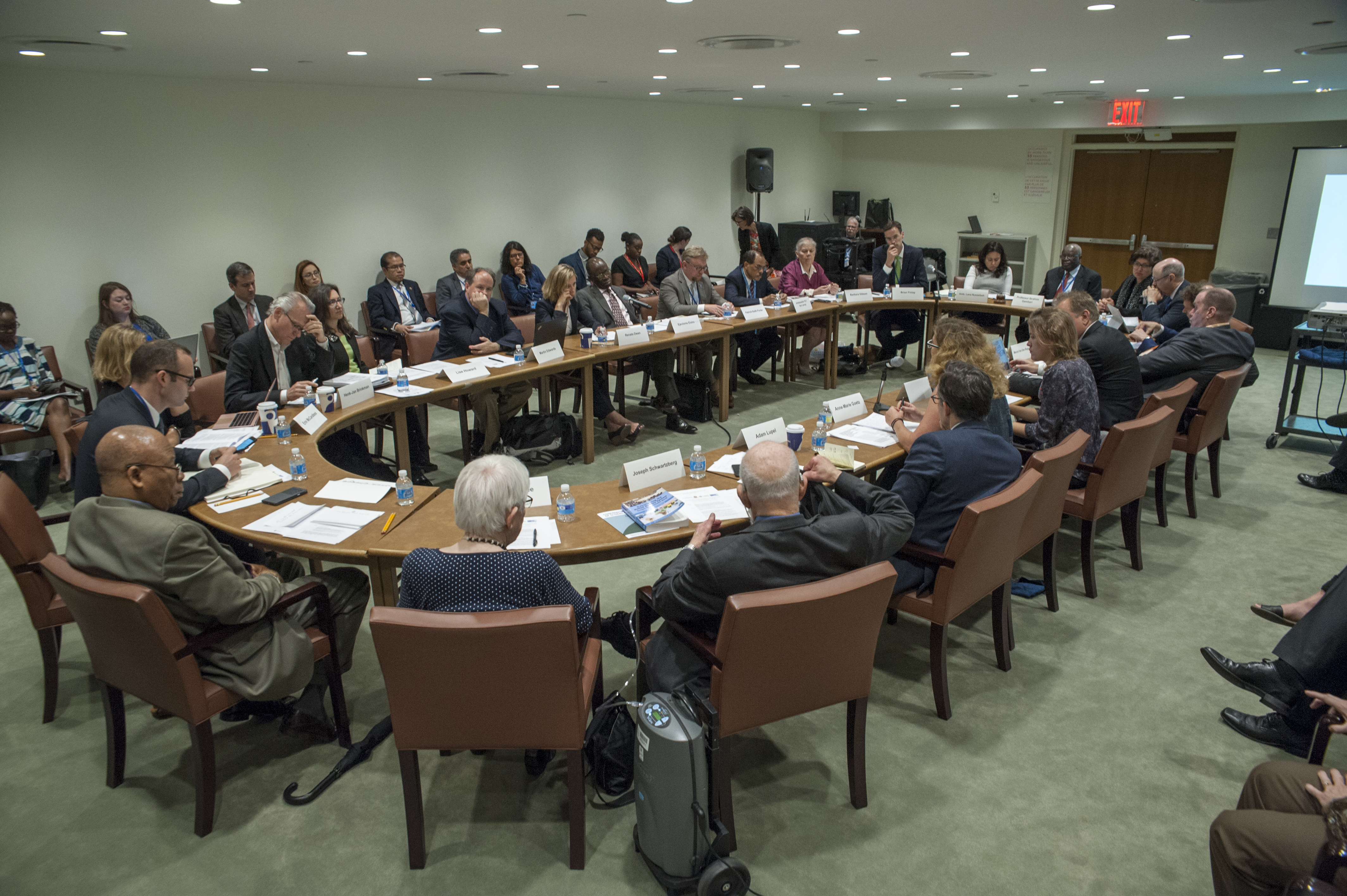 To mark the one-year anniversary of the Commission on Global Security, Justice & Governance report that concluded that the U.N. must reform to address modern threats, UAE Permanent Representative to the U.N. Ambassador Lana Nusseibeh and former Nigerian Foreign Minister and U.N. Under-Secretary-General for Political Affairs Ibrahim Gambari convened an Experts Dialogue today at the U.N in New York. The dialogue, “Coping with Violent Conflict and State Fragility,” focused on evaluating progress on the current challenges, as well as the path forward to dealing with worldwide instability, and included representatives from civil society, academia, and the diplomatic community.
To mark the one-year anniversary of the Commission on Global Security, Justice & Governance report that concluded that the U.N. must reform to address modern threats, UAE Permanent Representative to the U.N. Ambassador Lana Nusseibeh and former Nigerian Foreign Minister and U.N. Under-Secretary-General for Political Affairs Ibrahim Gambari convened an Experts Dialogue today at the U.N in New York. The dialogue, “Coping with Violent Conflict and State Fragility,” focused on evaluating progress on the current challenges, as well as the path forward to dealing with worldwide instability, and included representatives from civil society, academia, and the diplomatic community.
The dialogue was co-hosted by the Savannah Centre for Diplomacy, Democracy and Development (Abuja); the Permanent Mission of the United Arab Emirates to the U.N.; the Friedrich-Ebert-Stiftung New York Office; and the Stimson Center.
The nonpartisan, 14-member Commission on Global Security, Justice & Governance, led by Gambari and former U.S. Secretary of State Madeleine Albright, published its report in 2015, offering far-reaching recommendations to global governance institutions to better address challenges posed by conflict-affected states, climate change, and the hyper-connected global economy. Today’s experts roundtable revisited the Commission’s key recommendations, identified gaps in existing reform agendas, and suggested ways to contribute to the development of a larger, extended track 1.5 global dialogue on preventing and responding to future deadly conflicts.
“Militant extremism continues to take root in poorly governed spaces, where state institutions and the rule of law have collapsed. Violence and extremism not only express themselves within poorly governed spaces, but its effects are felt all over the world, including Paris, Brussels, and Orlando,” said Commission Co-Chair Ibrahim Gambari.
In her remarks at the Experts Dialogue, Ambassador Nusseibeh said, “The chaos and disorder non-state actors sow have global impacts in the form of terrorism, economic instability, and stress on the multilateral system, especially on institutions like the U.N.” She added, “We are convened here, at the United Nations, at what could not be a more crucial time for not only the organization – which will select its next leader in the coming months – but also for the Member States that are gathered at the U.N.”
2015 was a watershed year for global efforts to renew and strengthen how the international community manages deadly conflicts. Major analysis and recommendations were released by the U.N.-initiated High-level Independent Panel on Peace Operations, Global Study on the Implementation of United Nations Security Council Resolution 1325, and Advisory Group of Experts on the Review of the Peacebuilding. Working with international partners, the Stimson Center is undertaking further multi-stakeholder global dialogues on the major themes taken up by the Commission on Global Security, Justice & Governance, including climate governance, the global economy, and strengthening the United Nations.
Founded in 1989, the Stimson Center is a nonprofit, nonpartisan think tank devoted to addressing transnational challenges in order to enhance global peace and economic prosperity. Two years ago, Stimson — together with The Hague Institute for Global Justice — initiated the Commission on Global Security, Justice & Governance, which focused international attention on the intersection of security and justice in global governance.
Contact: Jim Baird [email protected]; (202) 478.3413
